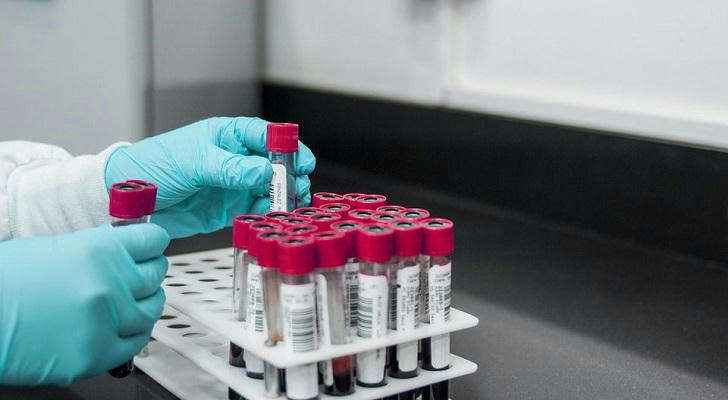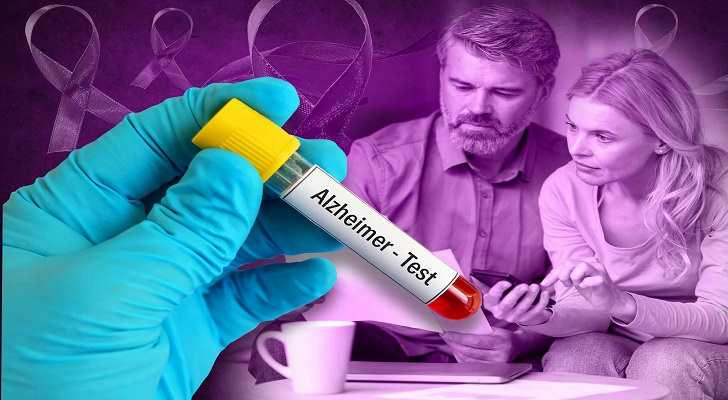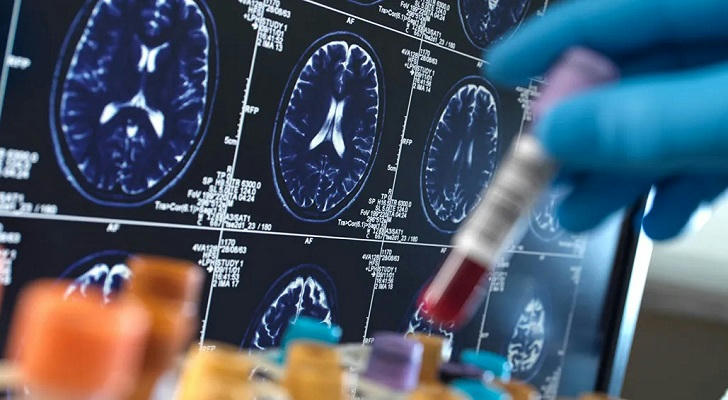Blood tests help diagnose Alzheimer's disease with an accuracy rate of up to 90%
Alzheimer's disease (AD) is a common neurodegenerative disease that affects the lives of millions of people worldwide. It severely impairs the patient's cognitive function. The medical community has long been looking for simpler and more efficient diagnostic methods to help patients detect the disease as early as possible and take intervention measures. Recently, a study in the Journal of the American Medical Association brought good news. Studies have shown that the accuracy of diagnosing Alzheimer's disease through blood tests can be as high as 90%. This figure far exceeds the 61% to 73% accuracy of traditional cognitive tests and CT scans. This discovery brings new hope for the early diagnosis and treatment of Alzheimer's disease.

Technical breakthrough in blood testing
The core finding of this study is that the concentration of tau protein (especially ptau-217) in the blood can be used as a key biomarker for Alzheimer's disease. Tau protein accumulates abnormally in the patient's brain, forming tangles, leading to a decline in cognitive ability. In contrast, traditional methods rely more on the detection of amyloid protein. Although amyloid plaques are one of the early features of Alzheimer's disease, they do not accurately reflect the degree of cognitive deterioration.
The study was conducted in Sweden and involved 1,200 participants. 500 were diagnosed by primary care physicians and 700 were evaluated by experts in memory clinics. The researchers compared the blood test results with cerebrospinal fluid analysis and PET scans and found that the misdiagnosis rate of blood tests was only 10%, while the misdiagnosis rates of primary care physicians and memory specialists were 36% and 25%, respectively.
The potential and limitations of blood tests
The prospects of blood testing technology are very broad, especially in the context of the increasing number of Alzheimer's patients every year. The number of patients in the United States has reached 7 million, and more than 32 million worldwide. In contrast, existing diagnostic methods often rely on invasive procedures (such as cerebrospinal fluid extraction) or expensive PET scans. These methods are not only painful for patients, but also limit the implementation of large-scale screening.
Nevertheless, experts point out that blood tests are not suitable for preventive screening of asymptomatic people. Professor Oscar Hansson of Lund University in Sweden said that finding Alzheimer's pathology in people without symptoms may cause unnecessary anxiety, especially when there is currently no effective treatment for asymptomatic patients. In addition, Alzheimer's pathology may develop decades before symptoms appear, but not all people who carry pathological markers will eventually develop dementia. Therefore, knowing the pathological state in advance may bring psychological burden without practical benefits.
Data support and further verification
Although blood tests show great promise, further verification is still needed to achieve global promotion. For example, the subjects of the Swedish study were mostly Caucasians, while the patient population in the United States is more diverse. Studies have found that patients of primary care doctors tend to be older, less educated, and often have other chronic diseases (such as diabetes and cardiovascular disease). These factors may affect the accuracy of the test. For example, patients with kidney disease may have elevated levels of ptau-217 in their blood, but this is not related to Alzheimer's disease. Future studies should cover a more diverse population to ensure the universality of the test results.

Real Case
In 2019, Mary (pseudonym), a 63-year-old retired teacher in Virginia, USA, began to notice that her memory was declining. At first, she just forgot some small things, such as where to put things at home, but then these problems became more and more frequent. Mary's mother and grandmother both have Alzheimer's disease, and her family history has made her very worried about her condition.
Mary's family suggested that she go to the hospital for a check-up. Traditional cognitive tests and magnetic resonance imaging (MRI) showed that Mary's memory function had declined, but these results were not enough to confirm a diagnosis of Alzheimer's disease. The doctor recommended that she take a new blood test to detect the presence of ptau-217 protein associated with Alzheimer's disease in the blood. This detection technology has just been promoted in the United States. Due to its high accuracy and convenience, it is gradually being used for early diagnosis.
Mary's blood test results showed that the level of ptau-217 protein was significantly increased. Although her clinical symptoms were not yet obvious, the doctor speculated that she was in the early stages of Alzheimer's disease based on the test results. Based on this diagnosis, the doctor developed a personalized treatment plan for Mary, including taking the drug Leqembi, combined with cognitive training and a healthy diet.
Two years later, Mary's disease progression was significantly controlled. With early diagnosis, she was able to start intervention before her cognitive function declined significantly. This case demonstrates the important role of blood testing technology in the early diagnosis of Alzheimer's disease and provides patients with more treatment options.
Future prospects and challenges of treatment
Blood testing not only provides new possibilities for early screening, but also brings new directions for treatment. In recent years, Alzheimer's drugs such as Leqembi and Kisunla have been approved one after another. They can target the removal of amyloid in the brain and slow down the deterioration of cognitive ability. Through blood testing, doctors can screen patients suitable for these drugs earlier, thereby improving the treatment effect.
However, the widespread use of blood testing still faces some practical problems. At present, many hospitals do not have the ability to conduct such tests independently, and usually need to send blood samples to specialized laboratories for analysis. In addition, the uneven distribution of medical resources may make it more difficult to apply technology in ethnic minorities, low-income people and remote communities. Future work should focus on addressing these issues and ensuring that every patient can get timely diagnosis and treatment.

Conclusion
Blood testing technology has brought revolutionary progress to the early diagnosis of Alzheimer's disease, and its high accuracy of 90% provides strong clinical support. To ensure the comprehensiveness of the diagnosis, blood tests should be used in combination with traditional cognitive tests, CT scans and other means. With the continuous development of therapeutic drugs, blood tests are expected to become a routine screening tool, similar to PSA tests or mammograms in cancer screening. But before that, its effectiveness needs to be verified in more people and the psychological impact needs to be properly handled.
